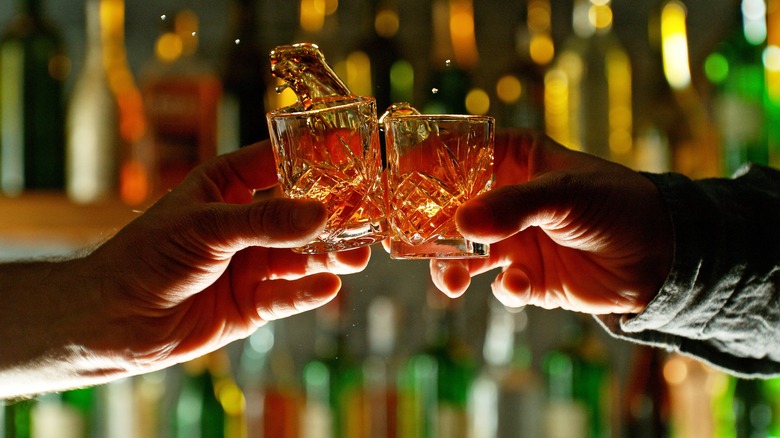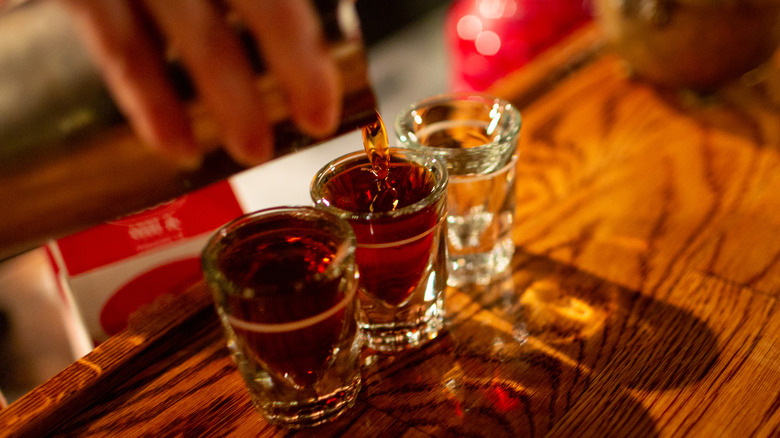Where The Term 'Taking A Shot' Really Came From
From artisanal Jell-O shots to upgraded pickle-back shots to straightforward pours of whiskey or tequila thrown back with friends at a rowdy bar, shots are so ubiquitous that most of us don't stop to think about where the term comes from. If someone offers you a "shot," you know you're getting an ounce of straight liquor or an ounce of something more akin to a mini cocktail, like the lemon drop tipple or the Irish breakfast shot. But what does that actually mean?
Like so many terms that have been around for ages, there are a few origin stories vying to be the one true explanation. One theory is that calling this one-sip drink "a shot" stems from old English. "Shot" may have meant a "flagon" – or metal pitcher for alcohol – given to a host's guest if they drank over a certain amount, according to "An Universal Etymological English Dictionary," written by Nathan Bailey in 1721. Additionally, "ale-shot" referred to the tab people paid for drinking ale at taverns. It's very possible these terms evolved throughout the centuries to become linked to the single-serving drinks we know today. Another proposed origin also conjures up images of days of yore: Writers predating contemporary pens had "shot glasses" with lead shot in them to keep them in place; they filled them with ink for their quills. Our boozy shots today could reveal a connection to those little ink vessels.
More theories for the shot's origin take us to the old West
Similar to the quill-user's shot glass, it's said a little cup would be placed on the dinner table of families who hunted so diners could place any buckshot found in their meat into the "buckshot glass." Speaking of a gun correlation, other etymological theories come from the old West. Some have suggested the term comes from the old saloon practice of patrons trading bullets for little whiskey pours. This is most likely mythology, as bullets were so much cheaper than whiskey. Elsewhere in old West legends, one surviving story claims temperance advocates shot a barrel of whiskey to try to drain it before anyone could drink it, so local imbibers would joke after that by requesting "a shot" of whiskey. One other viable explanation takes us to Germany, where Friedrich Otto Schott cofounded Jenaer Glaswerk Schott & Genossen in 1884 and is thought to have invented the diminutive glass.
We do know "shot" was used to refer to a "measure of liquor" in the autobiography of a British reverend alive in the 17th century, so it seems quite feasible people were calling little pours shots long before 1884, or the old West days. Its popularity as a term in this context did indeed grow in the 1800s, and by the late 1920s, it was the most frequently utilized name for a small glass of booze, just as we know it today.

